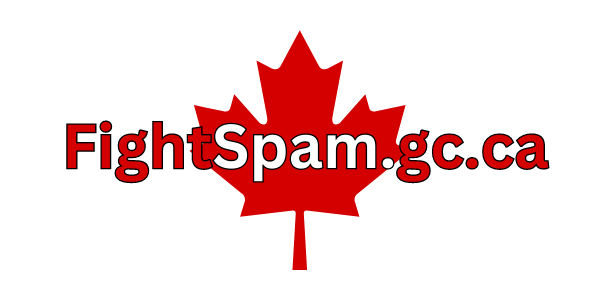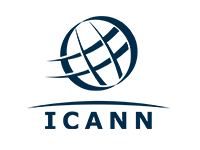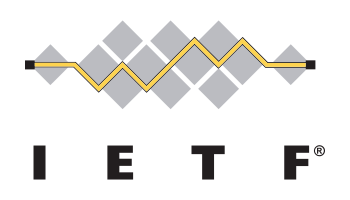Spam grows 143% in 2006. Christopher 'Rizler' Smith threatens to kill a witness in his trial, Alan Ralsky partner Daniel Lin pleads guilty. Datran Media settles a lawsuit filed against them over what is called "the largest deliberate breach of Internet privacy discovered by U.S. authorities". Goodmail stuns California senators, Blue Frog hops off into the sunset, pump & dump is discovered to increase stock prices. Sanford Wallace is fined for distributing spyware, AOL wants to dig up some turf. e360 Insight wins its case against The Spamhaus Project. Australia wins against Wayne Mansfield.
January 2006
Despite predictions, spam not dead. "We all maybe cringed a little bit when Bill (Gates) made that statement" said Ryan Hamlin, who heads anti-spam activities for Microsoft as general manager for Technology Care and Safety.
Postini claims between 2005 and 2006, the number of unsolicited e-mails increased 147 percent, and drew a map to prove it.
The Email Sender and Provider Coalition, American Advertising Federation, American Association of Advertising Agencies, Association of National Advertisers Inc., Electronic Frontier Foundation and the Center for Democracy & Technology file an amicus brief regarding the Utah Child Protection Registry Act
CIS Internet Services owner Robert Kramer III was awarded $11,200,000,000 in damages in his case against James McCalla of Florida, who is also barred from accessing the Internet for three years. For those keeping track, Kramer has a net worth of over 12 billion dollars. Strangely, he does not make it on the Forbes list.
Daniel J. Lin pleads guilty to 3 felony counts related to spamming for his part in the Alan Ralsky spam gang. He is fined $20,000, and handed a sentence of between 2 years and 57 months.
Hong Kong begins public consultations on the proposed opt-out Unsolicited Electronic Messages Bill
The Chinese Ministry of Information announced China will introduce anti-spam legislation in March, 2006.
Ironport's SenderBase adds URL tracking and Web reputation data filtering to the e-mail traffic monitoring network
Jeanson Ancheta pleads guilty U.S. District Court in Los Angeles to four felony charges for crimes that include infecting machines at two U.S. military sites with botnets. His plea agreement says he must serve four to six years in prison, forfeit a 1993 BMW and more than $58,000 in profit. He must also pay restitution of $19,000 US to the U.S. federal government for infecting the military computers.
Paul E. Burke, Wendy Burke, Seth T. Traub, Zhijian Chen, Manoj Kumar and Gary T. Preston are sued by the Washington state's attorney general for spamming and the dissemination of spyware on behalf of their company Secure Computer. This is the first case filed under state anti-spyware law.
A Maryland court determines that out-of-staters are liable to state anti-spam law. The case against Joseph M. Frevola and First Choice Internet Inc. moves forward.
Christopher William 'Rizler' Smith is found guilty under CAN-SPAM and ordered to pay $5,300,000 and $287,000 to AOL. His troubles are not over, as he is found to have attempted to have one of the prosecution witnesses killed, and is charged with that crime in March 2006.
February 2006
Outsourced 'Managed Service' style anti-spam filtering companies are the hot new thing MessageLabs, FrontBridge, Postini, BrightMail and MX Logic battle in the space.
Canadian Dale Begg-Smith is known as 'The Spam Man' in Australia. He remains uncharged for the activities.
Dutch police arrest a dozen Nigerians for sending 419 spam. The U.S. began extradition procedures for four of the principals.
AOL launches an $18 million lawsuit against 18 un-named phishers under the new Virginia law.
AOL announces it will begin charging legitimate businesses to send commercial e-mail to its users, by way of Goodmail Systems. The certified e-mail system would require advertisers to pay $2 to $3 per 1,000 messages. Yahoo! announces they too will be using Goodmail System's product for inbound commercial email.
Not everyone is in favour of the idea.
"It's taxation of the good guys with cash, and it does nothing to help the good guys who can't afford the cost or to deter the bad guys who spam anyway," says Matt Blumberg, CEO of Return Path, an e-mail services company.
"Baloney," says AOL's Nick Graham, scoffing at suggestions the e-mail system amounts to taxation. "That's competitive chatter and sour grapes."
March 2006
The Electronic Frontier Foundation launches DearAOL.com, a petition & website to convince AOL to kibosh the plan to use Goodmail Systems. AOL remains unconvinced, but agrees to let non-profit groups send email to them for free
Malware writers begin targeting developing nations because their computers are easy to infect.
Jennifer R. Clason of New Hampshire pled guilty to spam-related charges under CAN-SPAM in connection with a pornographic e-mail operation. Hers was the third-ever such conviction. Clason agreed to forfeit money obtained through the crimes and faced a maximum penalty of five years in prison for each of the offenses. The related trial of Jeffrey A. Kilbride and James R. Schaffer would take place in June 2006
China issued new spam regulations requiring a subject line tag, 'AD', for ISPs to register their IPs, and for them to retain logs for 60 days. It was noted that it was unclear what China considered to be illegal messages.
Microsoft calls for provisions for private right of action in Australia, under what the Australian Internet Industry Association the "toughest anti-spam legislation in the world".
Jumpstart Technologies LLC dba FreeFlixTix are found guilty under CAN-SPAM and fined $900,000 in a case filed by the FTC.
The New Zealand Communications Minister says international agreements are needed to effectively fight spam.
Datran Media agrees to a $1,100,000 settlement with New York state attorney general Eliot Spitzer in what is called "the largest deliberate breach of Internet privacy discovered by U.S. authorities."
Datran explained their actions by noting "Datran never received financial data and never sent e-mails regarding discount price drugs and that although 6 million e-mails are involved, that doesn't represent 6 million people."
April, 2006
The FTC closes down third-party affiliate spammers Qing Kuang “Rick” Yang, and Peonie Pui Ting Chen, and wins fines of $2,400,000 against their companies Optin Global and Vision Media. They are also forced to disgorge $475,000 in spam-related profits.
A California Senate committee is stunned that Goodmail Systems Inc. is not designed to stop spam
At the second annual Email Authentication Summit Microsoft tried to drum up support for Sender ID. Gartner analyst Arabella Hallawell thinks that "DKIM has the most potential" among the email authentication schemes available.
Asia becomes the single largest source of spam according to Sophos.
Researchers Thorsten Holz and Rainer Böhme find that pump & dump stock spam work; the price of stock actually does increase, briefly.
May 2006
Blue Security's Blue Frog 'DDOS the spammers' service, created in July 2005, is allegedly threatened by a Russian spammer. BS then shut their doors saying they wish to avoid "an ever-escalating cyber war through our continued operations". The project goes open source, renamed Black Frog's Okopipi, and never heard from again.
The Australian Communications and Media Authority (ACMA) launched a downloadable spam button.
A day in the life of Matt Sergeant of Messagelabs (and CAUCE Board Member) published in the New York Times in a two part series.
The Kodak Imaging Network (formerly Ofoto) is fined an undisclosed amount under CAN-SPAM by the Federal Trade Commission.
Sanford Wallace is fined $4,089,500 for distributing spyware.
June 2006
Anti-spam vendor Vanquish and the Email Accountability Initiative come up with Bonded Sender, years after Ironport
Convicted under CAN-SPAM and fined by the Texas attorney general for $10,000,000 (and also by Microsoft), spammer Ryan Pitylak wants to become an anti-spammer.
Pitylak Security with no Alexa rank and last updated April 10, 2008, specializes in
Ryan Pitylak Viral Marketing
Ryan Pitylak Marketing Success
Ryan Pitylak Search Engine Optimization
and
Ryan Pitylak Demand Generation
French European MP Alain Lamassoure floats the idea of an email tax. The idea goes nowhere.
NetBop Technologies wins the right to use the word spam in the anti-spam product name 'bopspam', to which Hormel objected, on the basis of copyright. Hormel subsequently
failed in an attempt to register Europe-wide trademarks asserting
its right over the term "spam".
3 un-named men, forming the hacker group m00p, are arrested for releasing worms online. A 63 year old from England, a 28 year old from Scotland and a 19 year old from Finland. Discussion ensues as to the origin of the name, Seinfeld or Southpark.
July 2006
The Australian Communications and Media Authority (ACMA) announces that an addendum to the Australian 2003 Spam Act, a code of practice for Internet and email service providers comes into force.
Major League Baseball sells sponsorship of their all-star game voting to Monster.com. Voters are signed up to Monster.
Porn spam gets 280 times more action than other types, according to CipherTrust
Image spam becomes a serious problem according to anti-spam filter vendors. Spammers without access to Photoshop use Microsoft Word, instead.
Hong Kong's draft anti-spam law has provision for prison terms of up to ten years for spammers.
August 2006
A spam claiming to hold the truth behind the JFK assassination makes the rounds. So does a Skype / sypware phishing spam.
AOL wants the right to do some landscaping at Davis Wolfgang Hawke's parents house. To satisfy their win of $12,800,000 in fines against Hawke, they want to go looking, with a bulldozer, for some gold and platinum bars he allegedly buried under their lawn.
China fines their first spammer, a company in Shenzhen, $714 under the new state law.
Mocbot, a spam proxy Trojan, begins to spread.
McAfee SiteAdvisor is deployed.
September 2006
Jeremy Jaynes' conviction and sentence of nine years under Virginia state law is upheld. The defense indicate they intend to appeal again.
Robert McAllister, CEO of Millennium National Events Inc. is charged with fraud. The defendant claims the prosecution is politically motivated, under orders from Karl Rove and George W. Bush, because he spammed anti-Bush emails. The claim is dismissed.
OPTA, the Dutch Independent Regulator of Post and Telecommunications, and ACMA, the Australian Communications and Media Authority cooperate in a bust of an Australian viagra spammer. The spammer apparently rented servers in The Netherlands to send the spam.
The Federal Trade Commission wins $400,000 in fines against Cleverlink Trading Ltd. and $151,000 against Zachary Kinion for violating CAN-SPAM.
Earthlink wins $11,000,000 under CAN-SPAM against KSTM.
e360 Insight wins against The Spamhaus Project who is ordered to pay $11,700,000 in damages. Spamhaus indicates they will continue to list e360 on the SBL, noting the Illinois court has no jurisdiction over the U.K.-based organization. e360 Insight requests
the judge demand ICANN suspend The Spamhaus Project's domain
spamhaus.org. The judge refuses
to do so.
Botnets come of age, according to Pat Peterson of Ironport, who tracks spam runs coming from 100,000 hijacked home computers spread across 119 nations that land at 1,500 different payload sites.
Earthlink uncovers a phishing ring, Michael Dolan of North Miami Beach, Florida Charlie Blount Jr., of Branford, Connecticut, Keith Riedel of Winter Haven, Florida, Richard D'Andrea of West Haven, Connecticut, Thomas Taylor Jr. of West Haven, Connecticut and Daniel Mascia of West Haven, Connecticut are charged under the scheme.
October, 2006
Brian Michael McMullen, 22, of East Pittsburgh, Pennsylvania is sentenced to three years supervised release, five months home detention and ordered to pay restitution in the amount of $11,848.55 for violating CAN-SPAM.
The Federal Court of Australia fined Clarity1 $3,400,000 and its director Wayne Mansfield $760,000 for sending unsolicited e-mails in the first conviction under Australia's Spam Act of 2003.
November 2006
Spam levels reach new levels, between 89% and 97% of all email sent, up 143% over the year previous. Ironport estimates 62,000,000,000 spam are sent daily and 85,000,000,000 are seen in one two-day period. The spike is attributed to 'durable botnets' facilitated by software like SpamThru.
In response, the OECD creates the StopSpamAlliance.org, along with the Asia-Pacific Economic Co-operation (APEC), the EU Contact Network for Spam enforcement Authorities (CNSA), the International Telecommunication Union (ITU), the London Action Plan for Spam Enforcement (LAP), and the Seoul-Melbourne MoU, and The European Commission called upon governments to be 'more active'. The ITU suggested even more international cooperation.
The FTC charged Yesmail Inc., doing business as @Once Corporation, with sending e-mail on behalf of its clients more than 10 business days after recipients had asked it to stop. Yesmail and the FTC settled the charges for $50,717.
December 2006
ORDB ceases operations as open relays are no longer being used to send spam.
Canada’s Voxbox World Telecom Inc. is seen in a pump & dump spam scam. Pink Sheets executives do nothing to address the issue.
Microsoft wins a summary judgment in the U.K. against Paul Martin McDonald and Bizads to prevent him from selling lists of Hotmail email addresses.

















